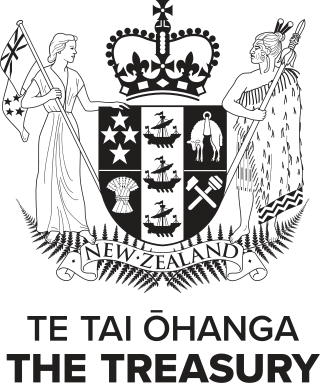
The Department of the Treasury (USDT) is the national treasury and finance department of the federal government of the United States, where it serves as an executive department. The department oversees the Bureau of Engraving and Printing and the U.S. Mint. These two agencies are responsible for printing all paper currency and minting coins, while the treasury executes currency circulation in the domestic fiscal system. The USDT collects all federal taxes through the Internal Revenue Service; manages U.S. government debt instruments; licenses and supervises banks and thrift institutions; and advises the legislative and executive branches on matters of fiscal policy. The department is administered by the secretary of the treasury, who is a member of the Cabinet. The treasurer of the United States has limited statutory duties, but advises the Secretary on various matters such as coinage and currency production. Signatures of both officials appear on all Federal Reserve notes.
The private finance initiative (PFI) was a United Kingdom government procurement policy aimed at creating "public–private partnerships" (PPPs) where private firms are contracted to complete and manage public projects. Initially launched in 1992 by Prime Minister John Major, and expanded considerably by the Blair government, PFI is part of the wider programme of privatisation and financialisation, and presented as a means for increasing accountability and efficiency for public spending.

The Commonwealth Bank of Australia (CBA), or CommBank, is an Australian multinational bank with businesses across New Zealand, Asia, the United States, and the United Kingdom. It provides a variety of financial services, including retail, business and institutional banking, funds management, superannuation, insurance, investment, and broking services. The Commonwealth Bank is the largest Australian listed company on the Australian Securities Exchange as of August 2015, with brands including Bankwest, Colonial First State Investments, ASB Bank, Commonwealth Securities (CommSec) and Commonwealth Insurance (CommInsure). Its former constituent parts were the Commonwealth Trading Bank of Australia, the Commonwealth Savings Bank of Australia, and the Commonwealth Development Bank.

The treasurerof Australia, also known as the Federaltreasurer or simply the treasurer, is the minister of state of the Commonwealth of Australia charged with overseeing government revenue collection, federal expenditure and economic policy as the head of the Department of the Treasury. The current treasurer is Jim Chalmers, who was selected by Prime Minister Anthony Albanese in May 2022 following the 2022 Australian federal election.
An Australian federal budget is a document that sets out the estimated revenues and expenditures of the Australian Treasury in the following financial year, proposed conduct of Australian government operations in that period, and its fiscal policy for the forward years. Budgets are called by the year in which they are presented to Parliament and relate to a financial year that commences on the following 1 July and ends on 30 June of the following year, so that the 2023 budget brought down in May 2023 relates to the 2023/24 financial year.

The Department for Environment and Water (DEW) is a department of the Government of South Australia. It is responsible for ensuring that the state of South Australia's natural resources are managed productively and sustainably, while improving the condition and resilience of the state's natural environment.
The Department for Education, Children and Young People (DECYP) is a government department within the Government of Tasmania with responsibility for Government schools, child and family learning centres, child safety and out of home care, youth justice services, libraries and the Tasmanian archives.

The New Zealand Treasury is the central public service department of New Zealand charged with advising the Government on economic policy, assisting with improving the performance of New Zealand's economy, and managing financial resources. The Minister responsible for the Treasury is the Minister of Finance of New Zealand; however, from 1996 to 2002, there existed a more specific position of Treasurer of New Zealand. The role was created for Winston Peters by the Fourth National Government under Jim Bolger after the 1996 election, and abolished by Helen Clark’s government in 2002.

The Department of the Treasury, also known as The Treasury, is the national treasury and financial department of the federal government of the Commonwealth of Australia. The treasury is responsible for executing economic and fiscal policy, market regulation and the delivery of the federal budget with the department overseeing 16 agencies. The Treasury is one of only two departments that have existed continuously since Federation in 1901, the other being the Department of the Attorney-General.

The Australian Public Service (APS) is the federal civil service of the Commonwealth of Australia responsible for the public administration, public policy, and public services of the departments and executive and statutory agencies of the Government of Australia. The Australian Public Service was established at the Federation of Australia in 1901 as the Commonwealth Public Service and modelled on the Westminster system and United Kingdom's Civil Service. The establishment and operation of the Australian Public Service is governed by the Public Service Act 1999 of the Parliament of Australia as an "apolitical public service that is efficient and effective in serving the Government, the Parliament and the Australian public". The conduct of Australian public servants is also governed by a Code of Conduct and guided by the APS Values set by the Australian Public Service Commission.
The New South Wales Premier's Department, a department of the New South Wales Government, is responsible for leading the New South Wales public sector to deliver on the Government's commitments and priorities. The department provides administrative support that enables the cabinet to identify, design and implement a coordinated policy, project and reform agenda that boosts the efficiency, productivity and effectiveness across the State. The department consults and work closely with other New South Wales government departments, the Commonwealth Government, local government, business and the community to ensure responses to community needs are effective.
Government spending in the United Kingdom, also referred to as public spending, is the total spent by Central Government departments and certain other bodies as authorised by Parliament through the Estimates process. It includes net spending by the three devolved governments: the Scottish Government, the Welsh Government and the Northern Ireland Executive.
The auditor-general of New South Wales helps the Parliament of New South Wales hold government accountable for its use of public resources.
The Department for Education of South Australia is a state government department delivering school education throughout the state. Education in Australia at school level is managed by each state, though the Commonwealth government makes a significant contribution. The Department was established through the Education Act of 1875 which allowed for the establishment of public schools and contained provisions for compulsory schooling of children aged between 7 and 13. As the state grew quickly into the 20th Century the Education Department expanded across the very large rural areas of the state. After World War II, rising birth rates, large scale immigration and increasing demand for secondary education led to very rapid growth in the Department. The number of private schools grew in this period and with increasing State aid provided growing competition for the State education sector. In the post-war period several of large reviews of education have taken place: in particular the Karmel and Keeves reviews. In 2017, there were 514 Schools and approximately 172,000 students within the Department.

The Treasury of New South Wales, branded NSW Treasury, a department of the New South Wales Government, is responsible for state financial management policy and reporting, and providing advice to the government on economic conditions and issues in New South Wales, Australia. NSW Treasury was established in April 1824 and is the oldest continuing government agency in Australia.
Paul Francis Grimes is a senior Australian public servant. Between September 2013 and March 2015, he was Secretary of the Australian Government Department of Agriculture.
The Department of the Premier and Cabinet (DPC) is a department of the Government of South Australia. It is the main agency supporting the Premier and Cabinet by developing policy and delivering their programs, and also carries the arts portfolio.

Service NSW is a New South Wales Government executive agency within the Department of Customer Service that provides a one-stop access to government services via online, phone or in-person at its service centres. The agency is the single point of contact point for a number of New South Wales government agencies including Transport for NSW, Fair Trading NSW and Births, Deaths and Marriages, and provides services such as the application for licences and permits, registration of births and payment of fines.







